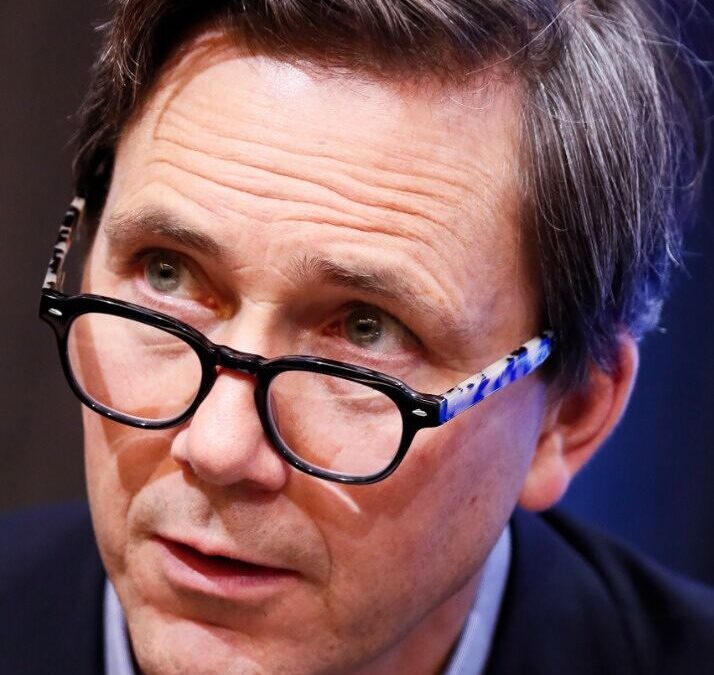I finished reviewing Richard Reeves‘s book, Of Boys and Men, with the tenth blog post on March 12. But I have been persuaded to allow Richard Reeves to speak directly to you in this video (thanks to Big Think) as a final summary. It is 15 minutes in length — a big ask of your time. If you have enjoyed or been intrigued by this series, Reeves’ words will add depth and “color.” Use the time stamps below to guide your access to his main points.
Revisit My First Post?
It may also be worth it (good students as you are) to review my initial post (Of Boys and Men – Revisitation of a Crisis in Six Parts) as cliff notes for the subsequent nine posts. See a repeat of the book’s signature quotes below.
Richard Reeves Video by Big Think
Start: — Don’t write this book
1:20: — Reeves introduces himself and Of Boys and Men
1:29: — Three biggest challenges
1:50: — Men in education
2:35: — Girls are ahead in college
3:51: — Male and female brain development
5:17: — Education structured against boys
5:52: — Solutions for education
7:30: — Working-class men — “so busy leaning in, we don’t look down”
7:54: — Men in the workforce
9:20: — STEM and HEAL jobs (psychology potentially an all-female profession)
10:54: — Dad deficit
11:51: — Women’s economic independence – the greatest liberation in human history
12:33: — Male disadvantage becoming intergenerational
13:10: — Deaths of despair
13:36: — Male sense of purpose
13:50: — Last words: men as “worthless” or “useless”
Signature Quotes from Of Boys and Men
- “It is a bad idea to send a cultural signal to half of the population that there may be something intrinsically wrong with them.” (p. 108)
- “Masculinity is not a pathology; it is quite literally a fact of life.” (p. 108)
- “The rather boring truth is that masculine traits are more useful in some contexts and feminine ones in others, and neither set in intrinsically better than the other.” (p. 87)
- “By far the biggest difference is not how female and male brains develop but when.” (p.11)
- “For those on the political left, victim-blaming is permitted when it comes to men.” (p. 109)
- “Many conservatives deny the environmental science of climate change. But many progressives deny the neurosciences of sex differences.” (p. 111)
- “The real debate is not whether biology matters, but how much it does, and when it does.” (p. 87)
- “This is the most dangerous message of all: men are naturally different than women, but only in ways that are bad.” (p. 112)
- “Our estimates imply that the aversion to having the wife earn more than the husband explains 29% of the decline of marriage rate over the last thirty years.” (Marianne Bertrand, p. 37)
- “The idea of the provider is a major element in the construction of a masculine identity. It is a moral as well as an economic category.” (David Morgan, p. 34)
- “In sum, women mate horizontally and up (socioeconomically), and men mate horizontally and down.” (Scott Galloway)
- “In recent years, most of the scientists identifying natural differences have, if anything, tended to stress the superiority of women.” (p. 111)
- “The dominant narrative of gender equality is framed almost exclusively in terms of the disadvantages of girls and women.” (p. 72)
- “Given the huge progress made by women in recent decades and the significant challenges now faced by many boys and men, it makes no sense to treat gender inequality as a one-way street.” (p. 115)
- “Rather than looking in the rear-view mirror, we need to establish a new basis for fatherhood, one that embraces the huge progress we have made toward gender equality.” (p. 38)
- “Many people on the political Left seem to fear that even acknowledging the problems of boys and men will somehow weaken efforts for women and girls. This is entirely false as a matter of practice and creates a dangerous political dynamic.” (p. 115)
- “There is certainly very little evidence that women are paid less than men for doing the same work in the same way.” (p.26) Women are paid less because they do different work, or work differently, or both.” (p. 27)
- “But as long as men continue to be willing to put in long and often unpredictable hours, the prospects for structural reform [in career ladders] remain dim.” (p. 181)
- “The fact that the highest rungs [of the economic ladder] have male feet all over them is scant comfort for the men at the bottom.” ~ The Economist (p. xi)
- “Conservatives worried about boys and men need to be concerned about economic inequality. But liberals worried about inequality must pay more attention to boys and men.” (p. 72)
- “One study showed that a Black man without a criminal record is less likely to be hired than a similarly qualified white man with a criminal record.” (p. 55)
- “There is simply no way to reduce economic inequality without improving the fortunes of less advantaged boys and men.” (p. 61)
- “It’s not that gender equality discourages girls from pursuing science. It’s that it allows them not to if they’re not interested.” (Olga Khazan, p. 98)

Steven, Thank you for bringing Richard Reeves on video. He really is a wonderful spokesperson for some positive changes he would suggest. He expresses an extreme understanding of the challenges facing society. He has some solutions that seem very difficult. Keep up your encouragement of increased understanding.
Whew! A massive undertaking with some powerful cues for recall at the end. Thanks, Steven, for doing the work to make this very important book more available to those of us who would not know of it otherwise.
And now the task is to take these points seriously and act on what Reeves is telling us so eloquently!